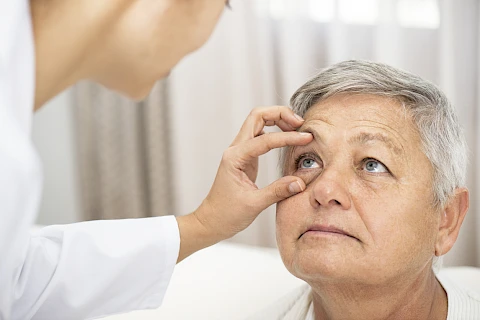
Every year, thousands of people worldwide regain the gift of sight through eye donation. By donating your eyes, you significantly improve the quality of life for someone who lost their vision due to disease or injury. This blog post raises awareness about the importance of eye donation, explains the process, and encourages seniors to consider leaving a legacy of sight by becoming eye donors.
What is Eye Donation?
Eye donation involves removing the corneas from a deceased donor. The clear, dome-shaped cornea covers the front of the eye and is crucial in focusing vision. When transplanted to a recipient, a healthy cornea can restore vision lost to conditions like corneal scarring or keratoconus.
Many people believe that donating their eyes will affect funeral arrangements. However, because doctors typically perform eye donation within a few hours of death, it does not interfere with open-casket viewings. Additionally, eye donation is a painless process for the donor, as it occurs after death.
Restoring vision through eye donation profoundly impacts recipients. It allows them to regain independence, return to work or school, and enjoy activities they love. For many families, eye donation is also a source of comfort, knowing that their loved one has given the gift of sight to someone else.
The Process of Eye Donation
Most people can be eye donors, regardless of age, blood type, or vision quality. Even individuals with common medical conditions like diabetes or hypertension may be eligible. Eye banks evaluate each potential donor before proceeding.
After death, a medical professional evaluates whether the eyes are suitable for donation. This includes reviewing the donor's medical history and performing blood tests to rule out infectious diseases. If the corneas are deemed healthy, the donation and transplant can proceed.
Encouraging Seniors to Consider Eye Donation
Having an open conversation with your family about your wishes can ensure that your decision to donate your eyes is respected. Your family needs to know you wish to become an eye donor so that they can provide consent after your passing.
Some seniors worry that donating their eyes will cause discomfort or disfigurement. It's important to understand that the donor's appearance is carefully restored after the procedure, allowing for traditional funeral services. Knowing this can help alleviate concerns.
Hearing from those who received corneal transplants or families who donated can be incredibly moving and inspiring. These stories often highlight the immense gratitude recipients feel and the solace families gain from their loved one's generous acts.
How to Register as an Eye Donor
To become an eye donor, follow these straightforward steps:
- Register with the New York State Donate Life Registry (or your local registry if outside NY).
- Indicate your decision on your driver's license or state ID.
- Communicate your decision with family members and healthcare providers.
Organizations such as the Eye Bank Association of America (EBAA) and Donate Life America provide valuable information on eye donation. Additionally, local eye banks are available to answer questions and guide you.
Ensuring your family and healthcare providers are aware of your wishes is crucial. They will be responsible for providing consent and coordinating the donation after your death. Take the time to discuss your decision with them and provide any required documentation.
Senior Helpers Westchester Wants to Help
Eye donation is a powerful way to leave a lasting legacy and improve the lives of others. By understanding the importance and process of eye donation, seniors can make informed decisions about becoming donors.
If you reside in Mount Vernon, Yonkers, New Rochelle, Bronxville, or Westchester County and seek support for your senior family member, please contact us at Senior Helpers Westchester. We would love to discuss our services for seniors and their caregivers, such as Personal Care and Companion Care.